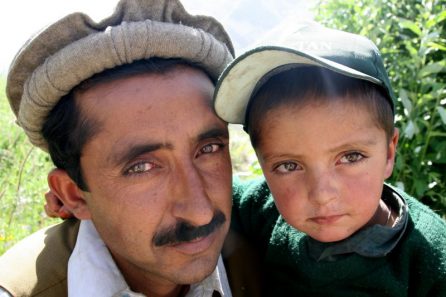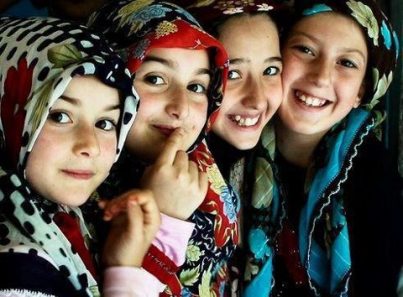The Hunger of Having a Male Child Ruins A Marriage Beyond Repair
Just as other sexual species, the ratio of sexes in humans is approximately 1:1. Around the world, the commonly thought ratio of men and women in the world is 107 males to 100 females. However, the scientific community debates and thinks of it as 101 men to 100 women.
According to World Bank’s report, the de-facto women population of Pakistan is 48.63%. Just as nature set its ways, a man and woman tie themselves in a bond for life, in the name of marriage. In Pakistan, this bond is threatened by one reason that trumps any other; the demand of a male heir.



Source: pbase.com
Women, as daughters, are appreciated, respected and adored all around the world; the same is the case in Pakistan. However, compared to the West and other Muslim countries, the demand and urge for a male heir for men is somewhat more.
In every marriage, love or arranged, the need for a child is imminent. However, the want and urge is mostly of a male child. In majority of the cases, if a newly wed couple is asked about their preference, hands down, they would wish for a male child. If this wish does not end up fulfilled, the chances of the marriage crashing are not impossible.
Indeed, demand of a male heir is one of the worst taboos of Pakistan, especially in the rural hinterlands. When the wife ends up giving birth to a daughter instead of a son, the struggle that comes along with it is appalling. From the child’s paternal sides’ taunts to a paradigm shift in the husband’s behavior, the blame of not giving birth to a male baby ruins the life of a woman.
How is it the women’s fault to what nature has written for her? She did not give birth to a daughter by choice. Furthermore, even if she did, who are we to say anything about it? God does what he wants, gives what he wants, when he wants and takes it away, as per his will.
Consecutive Births of Daughters Pave Path for Second Marriages



Source: zawaj.com
In some cases, women ends up giving birth to more than one daughter without giving birth to a son. This, is considered next to “sinning” and an “dhabba” on many families. The husband then gradually distances himself from his wife and with his family’s consent, they attention shifts on a second marrige. The reason? So that she can bare him a son.
What people do not realize is that the issue might be in the man’s genes too. Even if he marries 4 times, he might not end up with a son, but countless daughters; daughters whom he did not think of as perfect, and wanted a male heir to continue his name.
In most cases, a man will not divorce his first wife, but neglect her in relation with the second wife, especially if she bares him a son. Not only the husband, but his entire family will follow the same pattern, leaving the first wife as a secondary option and a mere burden.
Islam’s Position and Stance on Daughters – a Blessing



Source: muslim-academy.com
Let us start by quoting Hazrat Muhammad (S.A.W) on his stance on daughters. Our beloved Prophet (S.A.W) said, if a man raises two daughters, on the Day of Judgement, he and I will be like (as he pointed towards to joined fingers of his).
A man who raises 2-3 daughters, with dignity, rights and love, there Hereafter is promised to him. Somebody asked the Prophet (S.A.W), what if somebody raises just 1 daughter? The Prophet (S.A.W) replied, the same is the prize for him.
The pre-Islamic era saw Pagan men of Arab bury their daughters at birth; sink them in milk or kill them in some other manner. When Islam took over, these scourge practices were abolished and daughters were given a sacred status in the life of a man. The same daughters, who are kept secondary to their male counterparts, pledge their lives praying for their parents even after they leave this world.
In the 21st century, there is no place for such a draconian taboo. Pakistan needs to realize that daughter are blessings in more ways than one can imagine. It is pertinent to add here that not all fathers or paternal families feel this way, but, even if a single one does, the taboo is there and needs to be gotten rid of.



















